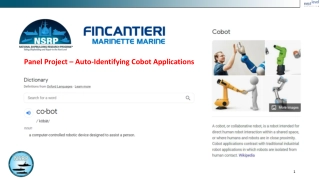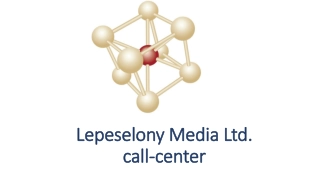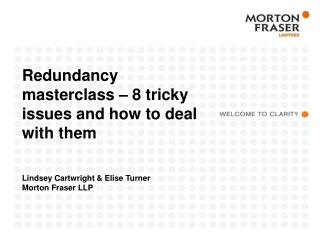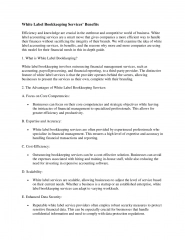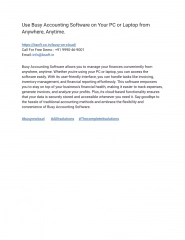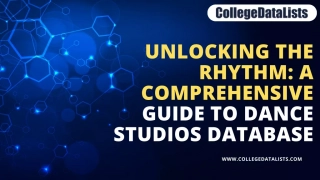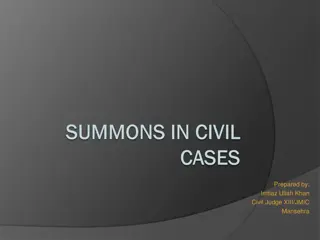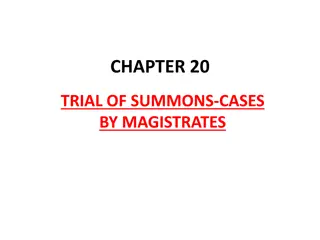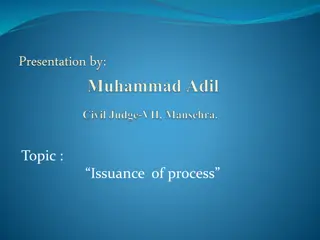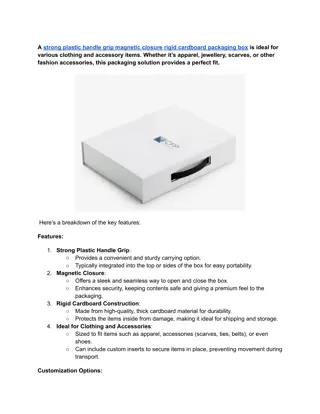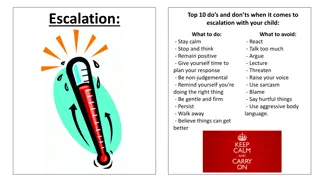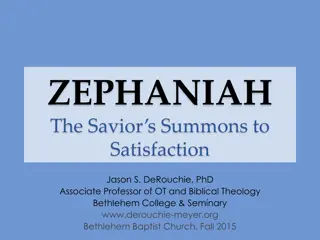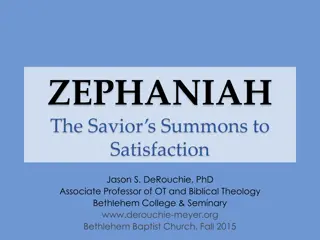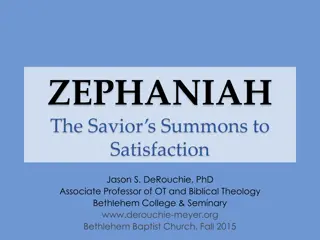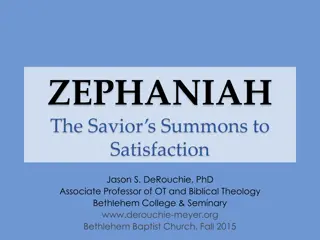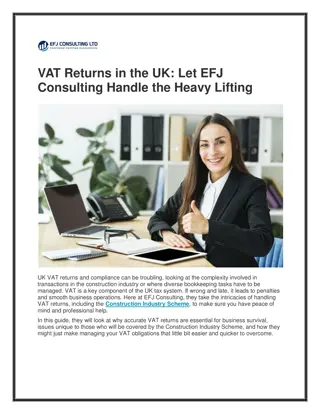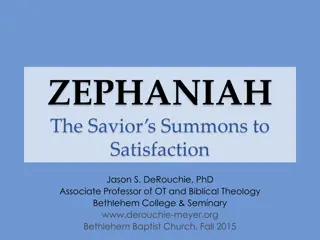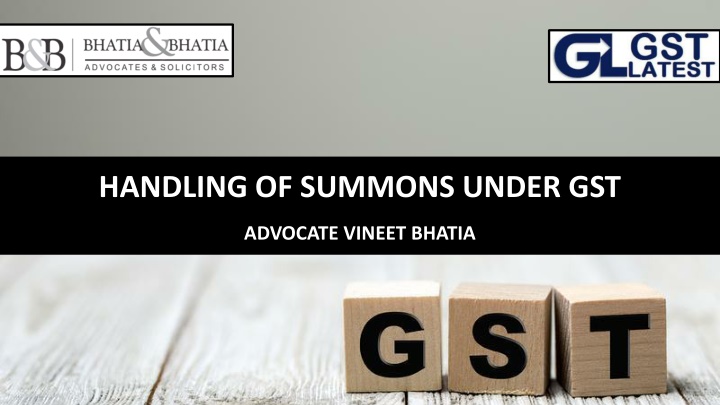
Handling of Summons under GST with Advocate Vineet Bhatia
Understand the power to summon persons, issue summons, and the meaning of a proper officer under GST as explained by Advocate Vineet Bhatia. Learn about the circulars and sections related to summons in GST. Seek professional advice before acting.
Download Presentation

Please find below an Image/Link to download the presentation.
The content on the website is provided AS IS for your information and personal use only. It may not be sold, licensed, or shared on other websites without obtaining consent from the author. If you encounter any issues during the download, it is possible that the publisher has removed the file from their server.
You are allowed to download the files provided on this website for personal or commercial use, subject to the condition that they are used lawfully. All files are the property of their respective owners.
The content on the website is provided AS IS for your information and personal use only. It may not be sold, licensed, or shared on other websites without obtaining consent from the author.
E N D
Presentation Transcript
HANDLING OF SUMMONS UNDER GST ADVOCATE VINEET BHATIA
Disclaimer The contents of this document are solely for informational purpose. It does not constitute professional advice or a formal recommendation. The presentation is made with utmost professional caution but in no manner guarantees the content for use by any person. It is suggested to go through original statute / notification / circular / pronouncements before relying on the matter given. The presentation is meant for general guidance and no responsibility for loss arising to any person acting or refraining from acting as a result of any material contained in this presentation will be accepted by us. Professional advice recommended to be sought before any action or refrainment. ADV. VINEET BHATIA
POWER TO SUMMON PERSONS TO GIVE EVIDENCE AND PRODUCE DOCUMENTS Section 70 Power to summon persons to give evidence and produce documents. 70. (1) The proper officer under this Act shall have power to summon any person whose attendance he considers necessary either to give evidence or to produce a document or any other thing in any inquiry in the same manner, as provided in the case of a civil court under the provisions of the Code of Civil Procedure,1908 (5 of 1908). (2) Every such inquiry referred to in sub-section (1) shall be deemed to be a judicial proceedings within the meaning of section 193 and section 228 of the Indian Penal Code (45 of 1860). ADV. VINEET BHATIA
POWER TO ISSUE SUMMON Section 70(1) to present himself before the officer issuing the summon Section 70(1) of CGST/SGST Act gives to call upon a person by issuing a summon powers to a Proper officer ADV. VINEET BHATIA
MEANING OF PROPER OFFICER UNDER GST Section 2(91) As per Section 2(91) of the CGST Act ProperOfficer in relation to any function to be performed under this Act, means the Commissioner or the officer of the central tax who is assigned that function by the Commissioner in the Board ADV. VINEET BHATIA
Dated 5th July, 2017 CIRCULAR NO. 3/3/2017 GST S. No. Designation of the officer Functions under Section of the Central Goods and Services Tax Act, 2017 or the rules made thereunder 4. Superintendent of Central Tax i. ii. Sub-sections (1) and (3) of Section 61 iii. Sub-section (1) of Section 62 iv. Sub-section (7) of Section 65 v. Sub-section (6) of Section 66 vi. Sub-section (11) of Section 67 vii. Sub-section (1) of Section 70 viii.Sub-sections (1), (2), (3), (5), (6), (7), (9) and (10) of Section 73 ix. Sub-rule (6) of Rule 56 x. Sub-rules (1), (2) and (3) of Rule 99 xi. Sub-rule (1) of Rule 132 xii. Sub-rule (1), (2), (3) and (7) of Rule 142 xiii. Rule 150 Sub- section (6) of Section 35 ADV. VINEET BHATIA
RELEVANT SECTIONS OF THE CODE OF CIVIL PROCEDURE, 1908 Section 27 Section 70(1) of the CGST Act states that the proper officer shall has the power to summon any person in the manner as provided in provisions of the Code of Civil Procedure, 1908 RELEVANT SECTIONS OF THE CODE OF CIVIL PROCEDURE, 1908 Section 27. Summons to defendants Where a suit has been duly instituted, a summons may be issued to the defendant to appear and answer the claim and may be served in manner prescribed. ADV. VINEET BHATIA
SUMMONS TO PERSONS OUTSIDE THEIR TERRITORIAL JURISDICTION Can a proper officer of Mumbai issue summons to a person in Delhi? If yes, what is the procedure for issue of summon? ADV. VINEET BHATIA
RELEVANT SECTIONS OF THE CODE OF CIVIL PROCEDURE, 1908 Section 28 28. Service of summons where defendant resides in another State (1) A summons may be sent for service in another State to such Court and in such manner as may be prescribed by rules in force in that State. (2) The Court to which such summons is sent shall, upon receipt thereof, proceed as if it had been issued by such Court and shall then return the summons to the Court of issue together with the record (if any) of its proceedings with regard thereto. (3) Where the language of the summons sent for service in another State is different from the language of the record referred to in sub- section (2), a translation of the record, (a) in Hindi, where the language of the Court issuing the summons is Hindi, or (b) in Hindi or English where the language of such record is other than Hindi or English, shall also be sent together with the record sent under that sub-section. ADV. VINEET BHATIA
JUDICIAL PROCEEDINGS WITHIN THE MEANING OF SECTION 193 AND SECTION 228 OF THE INDIAN PENAL CODE Section 70(2) within the meaning of section 193 and section 228 of the Indian Penal Code shall be deemed to be a judicial proceedings Every such inquiry referred to in section 70 (1) As per Section 70(2) of the CGST Act ADV. VINEET BHATIA
INDIAN PENAL CODE SECTION 193 Section 193 - Punishment for false evidence Whoever intentionally gives false evidence in any stage of a judicial proceeding, or fabricates false evidence for the purpose of being used in any stage of a judicial proceeding, shall be punished with imprisonment of either description for a term which may extend to seven years, and shall also be liable to fine, and whoever intentionally gives or fabricates false evidence in any other case, shall be punished with imprisonment of either description for a term which may extend to three years, and shall also be liable to fine. Explanation 1.--A trial before a Court-martial;is a judicial proceeding. Explanation 2.--An investigation directed by law preliminary to a proceeding before a Court of Justice, is a stage of a judicial proceeding, though that investigation may not take place before a Court of Justice. ADV. VINEET BHATIA
INDIAN PENAL CODE SECTION 193 Illustration A, in an enquiry before a Magistrate for the purpose of ascertaining whether Z ought to be committed for trial, makes on oath a statement which he knows to be false. As this enquiry is a stage of a judicial proceeding, A has given false evidence. Explanation 3.--An investigation directed by a Court of Justice according to law, and conducted under the authority of a Court of Justice, is a stage of a judicial proceeding, though that investigation may not take place before a Court of Justice. Illustration A, in any enquiry before an officer deputed by a Court of Justice to ascertain on the spot the boundaries of land, makes on oath a statement which he knows to be false. As this enquiry is a stage of a judicial proceeding. A has given false evidence. ADV. VINEET BHATIA
INDIAN PENAL CODE SECTION 228 Section 228 - Intentional insult or interruption to public servant sitting in judicial proceeding Whoever intentionally offers any insult, or causes any interruption to any public servant, while such public servant is sitting in any stage of a judicial proceeding, shall be punished with simple imprisonment for a term which may extend to six months, or with fine which may extend to one thousand rupees, or with both. ADV. VINEET BHATIA
SUMMARY OF SECTION 193 AND 228 OF IPC Imprisonment of 0-7 Years Whoever intentionally gives false evidence in any stage of a judicial proceeding, or fabricates false evidence for the purpose of being used in any stage of a judicial proceeding and Fine Imprisonment of 0-3 Years whoever intentionally gives or fabricates false evidence in any other case and Fine Whoever intentionally offers any insult, or causes any interruption to any public servant, while such public servant is sitting in any stage of a judicial proceeding Imprisonment of 0-6 Months or fine of Rs. 1000/- or with both ADV. VINEET BHATIA
Q. 27 FREQUENTLY ASKED QUESTIONS (FAQs) ON GOODS AND SERVICES TAX (GST) Q 27. When can the proper officer issue summons under CGST Act? Ans. Section 70 of CGST/SGST Act gives powers to a duly authorized CGST/SGST officer to call upon a person by issuing a summon to present himself before the officer issuing the summon to either give evidence or produce a document or any other thing in any inquiry which an officer is making. A summons to produce documents or other things may be for the production of certain specified documents or things or for the production of all documents or things of a certain description in the possession or under the control of the person summoned. ADV. VINEET BHATIA
Q. 28 FREQUENTLY ASKED QUESTIONS (FAQs) ON GOODS AND SERVICES TAX (GST) Q 28. What are the responsibilities of the person so summoned? Ans. A person who is issued summon is legally bound to attend either in person or by an authorized representative and he is bound to state the truth before the officer who has issued the summon upon any subject which is the subject matter of examination and to produce such documents and other things as may be required. ADV. VINEET BHATIA
Section 122(3)(d) CGST Act CONSEQUENCES OF NON-APPEARANCE TO SUMMONS when issued with a summons for appearance to give evidence or produce a document in an inquiry shall be liable to a penalty which may extend to twenty five thousand rupees. Any person who fails to appear before the officer of central tax As per Section 122(3)(d) of the CGST Act ADV. VINEET BHATIA
Q. 29 FREQUENTLY ASKED QUESTIONS (FAQs) ON GOODS AND SERVICES TAX (GST) Q 29. What can be the consequences of non-appearance to summons? Ans. The proceeding before the official who has issued summons is deemed to be a judicial proceeding. If a person does not appear on the date when summoned without any reasonable justification, he can be prosecuted under section 174 of the Indian Penal Code (IPC) If he absconds to avoid service of summons, he can be prosecuted under section 172 of the IPC In case he does not produce the documents or electronic records required to be produced, he can be prosecuted under section 175 of the IPC In case he gives false evidence, he can be prosecuted under section 193 of the IPC In addition, if a person does not appear before a CGST/ SGST officer who has issued the summon, he is liable to a penalty up to Rs 25,000/- under section 122(3)(d) of CGST/SGST Act ADV. VINEET BHATIA
INDIAN PENAL CODE Section 172 Section 172 - Absconding to avoid service of summons or other proceeding Whoever absconds in order to avoid being served with a summons, notice or order, proceeding from any public servant legally competent, as such public servant, to issue such summons, notice or order, shall be punished with simple imprisonment for a term which may extend to one month, or with fine which may extend to five hundred rupees, or with both; or, if the summons or notice or order is to attend in person or by agent, or to [produce a document or an electronic record in a Court of Justice], with simple imprisonment for a term which may extend to six months, or with fine which may extend to one thousand rupees, or with both. ADV. VINEET BHATIA
INDIAN PENAL CODE Section 174 Section 174 - Non-attendance in obedience to an order from public servant Whoever, being legally bound to attend in person or by an agent at a certain place and time in obedience to a summons, notice, order or proclamation proceeding from any public servant legally competent, as such public servant, to issue the same, intentionally omits to attend at that place of time, or departs from the place where he is bound to attend before the time at which it is lawful for him to depart, shall be punished with simple imprisonment for a term which may extend to one month, or with fine which may extend to five hundred rupees, or with both, or, if the summons, notice, order or proclamation is to attend in person or by agent in a Court of Justice, with simple imprisonment for a term which may extend to six months, or with fine which may extend to one thousand rupees, or with both. ADV. VINEET BHATIA
INDIAN PENAL CODE Section 174 .. Illustrations (a) A, being legally bound to appear before the[High Court] at Calcutta, in obedience to a subpoena issuing from that Court, intentionally omits to appear. A has committed the offence defined in this section. (b) A, being legally bound to appear before a [District Judge], as a witness, in obedience to a summons issued by that [District Judge] intentionally omits to appear. A has committed the offence defined in this section. ADV. VINEET BHATIA
INDIAN PENAL CODE Section 175 Section 175 - Omission to produce document or electronic record to public servant by person legally bound to produce it Whoever, being legally bound to produce or deliver up any 1[document or electronic record] of any public servant, as such, intentionally omits so to produce or deliver up the same, shall be punished with simple imprisonment for a term which may extend to one month, or with fine which may extend to five hundred rupees, or with both, or, if the[document or electronic record] is to be produced or delivered up to a Court of Justice, with simple imprisonment for a term which may extend to six months, or with fine which may extend to one thousand rupees, or with both. Illustration A, being legally bound to produce a document before a[District Court], intentionally omits to produce the same. A has committed the offence defined in this section. ADV. VINEET BHATIA
FREQUENTLY ASKED QUESTIONS (FAQs) ON GOODS AND SERVICES TAX (GST) Q. 30 Q 30. What are the guidelines for issue of summons? - F. No. 207/07/2014- CX-6 dated 20.01.2015 Ans. The Central Board of Excise and Customs (CBEC) in the Department of Revenue , Ministry of Finance has issued guidelines from time to time to ensure that summons provisions are not misused in the field. Some of the important highlights of these guidelines are given below: Summons are to be issued as a last resort where assesses are not co-operating and this section should not be used for the top management The language of the summons should not be harsh and legal which causes unnecessary mental stress and embarrassment to the receiver ADV. VINEET BHATIA
FREQUENTLY ASKED QUESTIONS (FAQs) ON GOODS AND SERVICES TAX (GST) Q. 30 Q 30. What are the guidelines for issue of summons? - F. No. 207/07/2014- CX-6 dated 20.01.2015 In all cases, where summons are issued, the officer issuing summons should submit a report or should record a brief of the proceedings in the case file and submit the same to the officer who had authorized the issuance of summons; Senior management officials such as CEO, CFO, General Managers of a large company or a Public Sector Undertaking should not generally be issued summons at the first instance. They should be summoned only when there are indications in the investigation of their involvement in the decision making process which led to loss of revenue. ADV. VINEET BHATIA
FREQUENTLY ASKED QUESTIONS (FAQs) ON GOODS AND SERVICES TAX (GST) Q. 31 Q 31. What are the precautions to be observed while issuing summons? Ans. The following precautions should generally be observed when summoning a person: - A summon should not be issued for appearance where it is not justified. The power to summon can be exercised only when there is an inquiry being undertaken and the attendance of the person is considered necessary. Normally, summons should not be issued repeatedly. As far as practicable, the statement of the accused or witness should be recorded in minimum number of appearances. Respect the time of appearance given in the summons. No person should be made to wait for long hours before his statement is recorded except when it has been decided very consciously as a matter of strategy. Preferably, statements should be recorded during office hours; however, an exception could be made regarding time and place of recording statement having regard to the facts in the case. ADV. VINEET BHATIA
GUIDELINES ISSUED BY DGGI Seeking to minimise inconveniences to top executives of firms, the Directorate General of GST Intelligence (DGGI) has issued broad guidelines to officers not to resort to excesses. Top management of big firms, including PSUs, must not be issued summons in the first instance during probe, it said. ADV. VINEET BHATIA
GUIDELINES ISSUED BY DGGI As an enforcement agency, it is imperative for the DGGI to maintain a balance wherein investigations should proceed strictly, as per law, while simultaneously ensuring that no excesses are meted out to the taxpayers and their sensibilities are respected, it said in a circular dated August 14. ADV. VINEET BHATIA
GUIDELINES ISSUED BY DGGI A summon for personal appearance should only be issued when specifically required and such summons should not be issued repeatedly. Officers should record comprehensive statements in the first instance itself, it said. Senior management officials such as CEO, CFO, general managers of a large company or PSU should not generally be issued summons at the first instance unless the evidence suggests otherwise, DGGI said. ADV. VINEET BHATIA
GUIDELINES ISSUED BY DGGI The officers have also been advised to be sensitive towards the assessee or party and special attention should be given to elderly, women and children present in the premises under search. Children should be allowed to go to school, after examining their bags. A woman occupying any premises, to be searched, has the right to withdraw before the search party enters, if according to the customs she does not appear in public. If a person in the premises is not well, a medical practitioner may be called. Religious sentiments of the person under search should not hurt in any way, the DGGI said. ADV. VINEET BHATIA
RELEVANCY OF STATEMENTS IN PROSECUTION PROCEEDINGS Section 136 Relevancy of statements under certain circumstances. 136. A statement made and signed by a person on appearance in response to any summons issued under section 70 during the course of any inquiry or proceedings under this Act shall be relevant, for the purpose of proving, in any prosecution for an offence under this Act, the truth of the facts which it contains, (a) when the person who made the statement is dead or cannot be found, or is incapable of giving evidence, or is kept out of the way by the adverse party, or whose presence cannot be obtained without an amount of delay or expense which, under the circumstances of the case, the court considers unreasonable; or (b) when the person who made the statement is examined as a witness in the case before the court and the court is of the opinion that, having regard to the circumstances of the case, the statement should be admitted in evidence in the interest of justice. ADV. VINEET BHATIA
5th November, 2019 CIRCULAR NO. 122/41/2019 GST Generation and quoting of Document Identification Number (DIN) on any communication issued by the officers of the CBIC to tax payers and other concerned persons. No search authorisation, summons, arrest memo, inspection notices and letters issued in the course of any enquiry shall be issued by any officer under the Board to a taxpayer or any other person, on or after 08.11.2019 without a computer generated DIN being duly quoted prominently in the body of such communication. Any specified communication which does not bear DIN and is not covered by the exceptions mentioned in the circular no. 122/2019-GST shall be treated as invalid and shall be deemed to have never been issued. ADV. VINEET BHATIA
PRECAUTIONS TO BE TAKEN WHILE GIVING STATEMENTS Ensure that before signing on recorded statement, the person asks to allow to read statement before signing it. The person being summoned has the right to ask a copy of the statement being recorded. Ask for copy of statement, before signing it. Statement should be in writing and signed by the officer making the statement. If copy of signed statement was asked but not given, then soon after coming out of the room, he should write down all the questions and answers when fresh in his mind. ADV. VINEET BHATIA
IS THE PERSON GIVING STATEMENT ENTITILED TO COPY OF THE STATEMENT M/s. Jayachandran Alloys (P) Ltd., vs. The Superintendent of GST and Central Excise and Ors. (Writ Petition No.5501 of 2019) The Hon ble Court held that copies of the documents sought will be furnished within a period of two (2) weeks from the date of receipt of a copy of this order upon remittance of copying charges. As far as statements are concerned, there being no condition imposed/ restriction placed in statute, copies of the same will be furnished upon remittance of copying charges within two(2) weeks from date of receipt of a copy of this order. Further the Court rejected the contention of the respondent where the respondent submitted tht Petitioner be directed to remit a sum of Rupees five crores as a security for the demand as confirmed by the Managing Director and held that the request is unacceptable. A statement is no substitute for an assessment. No doubt, the value of the statement and the retraction thereof will be considered by the Assessing Authority while framing the order of assessment and nothing stated in this order shall be considered to be a fetter upon the powers of the assessing authority to do so. However, in the absence of a statutory provision that enables such imposition of a condition even prior to determination of the violations by an assessee and quantification of the consequent demands, this argument is rejected. ADV. VINEET BHATIA
WHETHER THE COUNSEL OF THE PERSON CAN BE PRESENT DURING THE COURSE OF SUMMON Vijay Sanjani Vs UOI 2017 (345) E.L.T. 323 (S.C.) During the course of summons, the tax payer s counsel would be allowed to be present within visible distance, but beyond hearing range. ADV. VINEET BHATIA
RETRACTION OF STATEMENTS The Hon ble apex court in Vinod Solanki Vs. U.I.O. 2009 (233) ELT 157 (S.C.) A person accused of commission of an offence is not expected to prove to the hilt that confession had been obtained from him by any inducement, threat or promise by a person in authority. The burden is on the prosecution to show that the confession is voluntary in nature and not obtained as an outcome of threat, etc. if the same is to be relied upon solely for the purpose of securing a conviction. ADV. VINEET BHATIA
RETRACTION OF STATEMENTS The Hon ble apex court in Vinod Solanki Vs. U.I.O. 2009 (233) ELT 157 (S.C.) With a view to arrive at a finding as regards the voluntary nature of statement or otherwise of a confession which has since been retracted, the Court must bear in mind the attending circumstances which would include the time of retraction, the nature thereof, the manner in which such retraction has been made and other relevant factors Law does not say that the accused has to prove that retraction of confession made by him was because of threat, coercion, etc. but the requirement is that it may appear to the court as such. ADV. VINEET BHATIA
RETRACTION OF STATEMENTS DRI Vs. Mahendera Kumar Singhal 2016 (333) ELT (250) (Del.): Held that burden is on the department to show that retraction made by the maker is the statement is not valid. In COMMR. OF C. EX., AHMEDABAD-III Vs. DEORA WIRES N. MACHINES PVT. LTD. 2016 (332) ELT 393 (Guj.): When in fact, the confirmation of duties and penalties were based on confessional statements which were promptly retracted and there was no other independent material on record, the Tribunal correctly reversed the orders of the authorities below. No question of law arises. Tax appeal is dismissed. Civil application also stands dismissed. ADV. VINEET BHATIA
RETRACTION OF STATEMENTS The Hon ble High court of Delhi again in the matter of CCE, Delhi-I Vs. Vishnu & Co Pvt. Ltd., 2016 (332) ELT 793 (Del.) held as under: What the above submission overlooks is the reliability of such statements. Once it is shown that the maker of such statement has in fact resiled from it, even if it is after a period of time, then it is no longer safe to rely upon it as a substantive piece of evidence. The question is not so much as to admissibility of such statement as much as it is about its reliability . It is the latter requirement that warrants a judicial authority to seek, as a rule of prudence, some corroboration of such retracted statement by some other reliable independent material. This is the approach adopted by the CESTAT and the Court finds it to be in consonance with the settled legal position in this regard. ADV. VINEET BHATIA
THANK YOU Presented By Adv. VINEET BHATIA 9811081159 HEAD OFFICE A-2, Saraswati Vihar, Delhi-110034. Ph. 42041267, 9811081159 bhatiav68@gmail.com, vineet@bnblegal.in BRANCH OFFICE N-144, Greater Kailash-I, New Delhi -110048. Ph: 46536490, 29241260,98-110-81159


